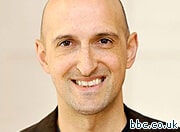The National Lottery is part of “society’s modern cancers” and should be scrapped, a newspaper commentator and former Olympian has said.
Matthew Syed described the lottery’s effect on British culture as “corrosive”, and warned that many people who take part can “ill afford” to do so.
He also highlighted comments from the anti-slavery campaigner William Wilberforce who strongly criticised an earlier public lottery.
Success
Mr Syed, who represented Great Britain at table tennis in the 1992 and 2000 Olympics, hit out at the Lottery’s “semblance of virtue” in its support for sport and the arts.
He said: “If the State wants to raise money for good causes, it should do so via taxation, not by promoting gambling, one of society’s modern cancers.”
Mr Syed added that current athletes, who show young people that hard work leads them to success, often have to promote “get rich quick” scratch-cards in return for lottery funding.
Corrosive
Mr Syed, who was writing in The Times, commented: “Nobody is forced to play the lottery, of course, but the State is not ‘forced’ to sustain this grotesque experiment, either.”
He added that Camelot, which operates the National Lottery, “likes to point out that many play the lottery without becoming hooked on it, or on gambling generally”.
“But for others and for our wider culture, the effects are indisputable. And they are corrosive”, Mr Syed added.
Inflict
The commentator concluded: “William Wilberforce, who campaigned to abolish slavery, despised an earlier lottery. ‘It is particularly objectionable’, he wrote, ‘because it diffused a spirit of gambling among the people, while it produced no benefit to the public Treasury in any degree commensurate to the injury it inflicted in the interest of the community.’
“He was bang on the money. The lottery should be scrapped.”
In July a woman who became Britain’s youngest National Lottery winner – and then frittered most of it away – said she prefers life now with less wealth.
Happy
Callie Rogers was 16 when she won £1.9 million. She spent the money on parties, holidays and beauty products, in an effort to find happiness.
But, speaking to Closer magazine, she said the things she bought to cheer her up “never did for long”.

